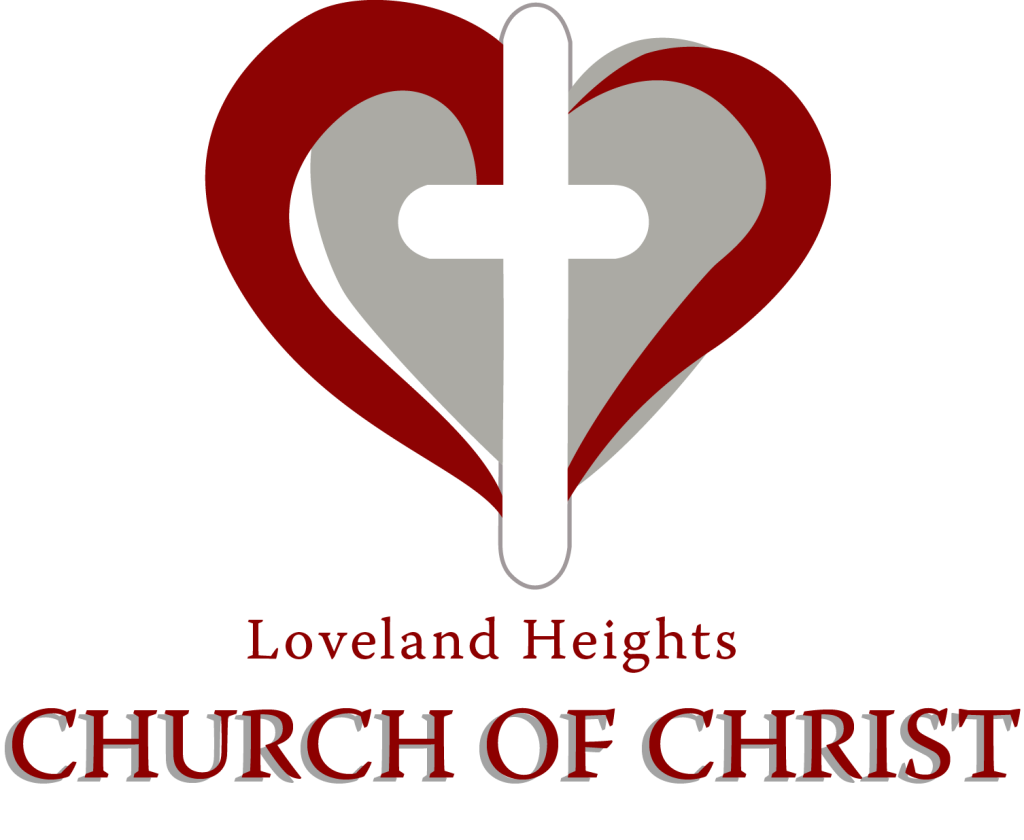Keep up to date with our sign on the corner
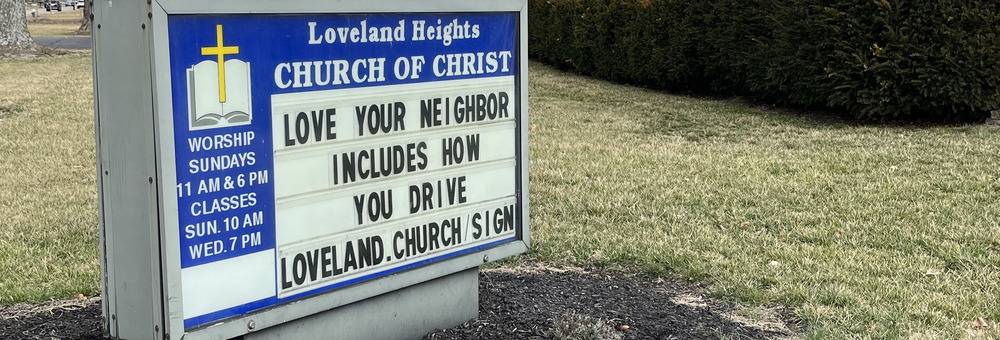
Your Invisible Neighbors
Is it easy to consider the feelings of our loved ones? The ones closest to us who live in our home? What about the ones who live nearby, or we see at church, or work, or school? Is it easy to love the people in this world we will never meet? For all of the above… not always! But for the ones we see, at least there is immediate feedback for our behavior. There’s constant reinforcement both good and bad. For the people we may never meet… those we pass on the highway, those who live on the other side of town, the marginalized groups we find it too easy to judge… it’s harder to love and to consider how our behavior might affect them… and how our love or lack thereof affects our own soul. This is especially true when the majority of what we Do experience is often negative – getting cut off in traffic or negative stories in the news. Yet they are still our neighbors. We still have a responsibility to love them – whether we know them and their story or not. When we cultivate a mentality of goodwill, generosity, and affection, that can permeate our life and immediate community. As we all do that, we can change the world for the better, even with the people we won’t see.
Let all that you do be done in love.
-1 Corinthians 16:14
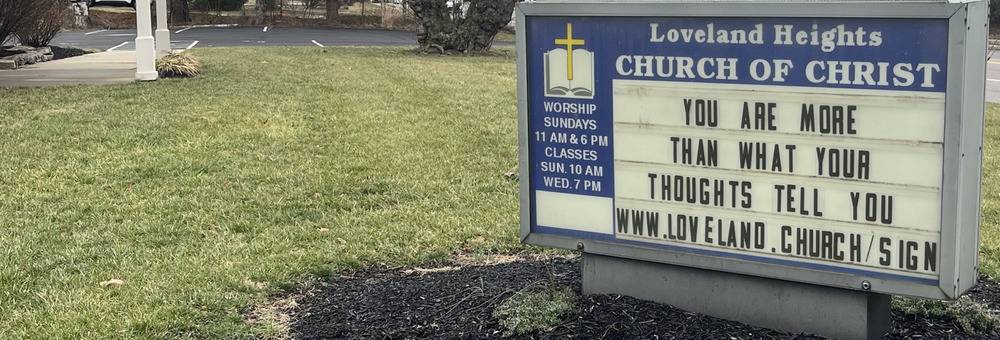
You are more than what your thoughts tell you
I remember hearing someone, years ago, say that you wouldn’t be friends with a person who constantly doubted you, belittled you, judged and criticized you, and never held back any negative thing about you. And how, if that were true, we wouldn’t be friends with the person in our own head. It’s helped me to realize that our thoughts are just that – thoughts. They aren’t an honest evaluation of events and circumstances. They don’t present a balanced and nuanced picture of all the data. They aren’t the truth. This is true regarding our roles in our family, with our friends, at work, and with our hobbies. And it’s also true with our value. Whether because of our culture, our innate humanity, or something else, many people evaluate their own value based on what they provide, what they possess, or what they perform. But we also know that we don’t judge the value of those we love this way. And when God talks about our intrinsic value, we don’t see Him reaching for a price tag or a balance sheet. We see Him using hyperbole, metaphor, and poetic language because, the truth is, we are all infinitely valuable. Even if our current projects make us think otherwise.
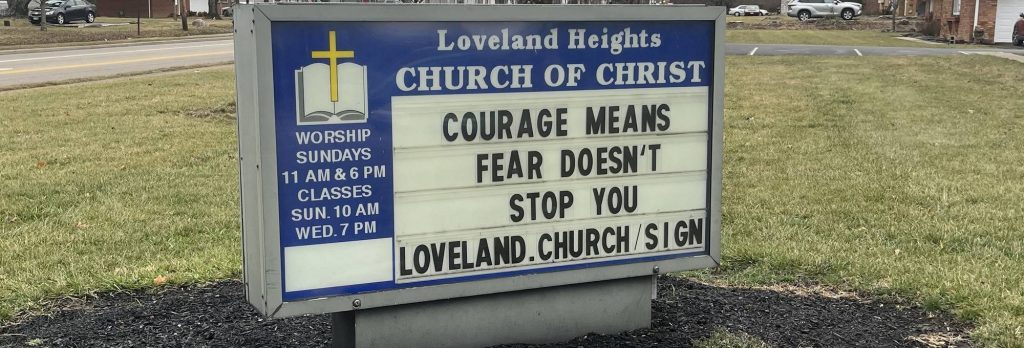
Courage means fear doesn’t stop you
I remember, as a teenager, listening to a sermon about faith and courage. The preacher talked a lot about how we all need to be people who are defined by faith and acting from faith – not fear. And I agree with that. We all decide the tenor and purpose that drive our actions. But I also remember the preacher, in his lesson, talking about how, like oil and water, faith and fear don’t mix. You can’t have both of them. The existence of one negates the other. The presence of the other destroys the one. And this makes for a good metaphor. It is great for a lesson or a poetic retelling of a story. But I have not found this to be true in real life – my own, or the people I see living courageously. I don’t see them plowing through every obstacle fearlessly and easily. Rather, the ones I see living with the most courage are fully aware of the difficulty in front of them. They know the alternatives. They know what could happen. But they also don’t let those fears, concerns, or struggles stop them from living courageously and faithfully. In fact, I have come to believe exactly the opposite of what I once did about the relationship between courage and fear. They aren’t mutually exclusive. They can only exist together. You can’t have courage if you aren’t afraid. If you are acting courageously without fear, you simply aren’t aware of the possibilities. But living courageously means that, while you understand there is much to fear, you aren’t going to let that define your faith.
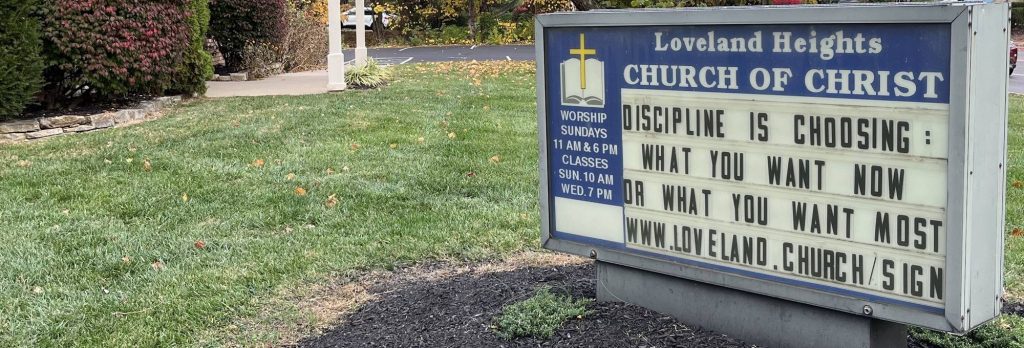
Discipline is choosing: what you want now or what you want most.
There was an audiobook I had been waiting weeks for. The library had put me on a waiting list that must have had everyone in the county on it. Finally, my turn came, and I started listening whenever I was in the car. Two weeks later, to my disappointment, the book got returned, and I started waiting for my next opportunity. When it came, I didn’t mess around. I had 16 more hours to listen, and I knew how short that two weeks would be! The day the book was going to be returned, I listened all evening – I didn’t want to have to wait another 8-10 weeks to finish! This isn’t the only time I have ignored the rest of my life to read a book! And, like many people, I’ve had my share of all-nighters in college. There’s nothing like what Tim Urban calls the “Panic Monster” to get a person moving. It’s in those moments, at least, where we are finally confronted with the reality of choosing what we want most over what we want now. But this is just as much a choice for the rest of our days, as well. And I don’t think we give ourselves enough credit for how often we choose to do the difficult things. It’s simple in our culture to remember all the times we have failed and forget all the times we have done well.
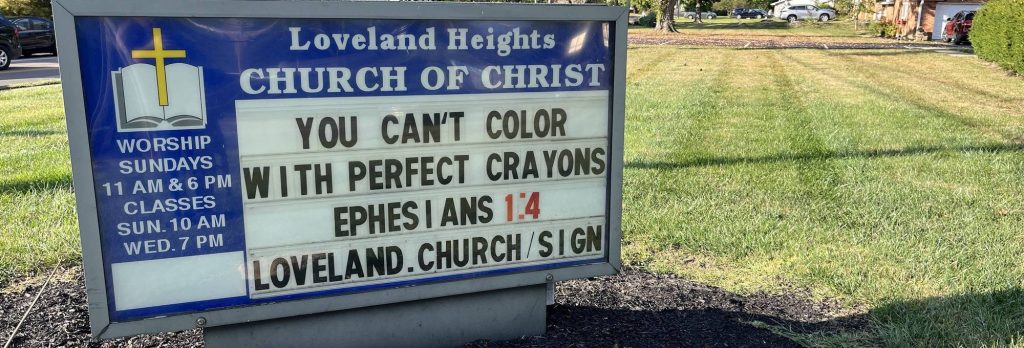
You can’t color with perfect crayons
There’s something magical about opening a new box of crayons. Even today, as an adult! Seeing the colors all lined up in the box, each one fresh and new, the points perfectly pointed, the wrappers perfectly wrapped… it’s thrilling! A new box of crayons carries such an expectation of what is to come. From those orderly rows and a pristine, blank page will spring forth imagination and creativity. The heart will find itself expressed on the page. The crayons don’t stay perfect though, do they? Worn down, wrappers peeling, snapped off, broken. We know the crayons have seen a lot and done a lot when they look like this. It’s the same with people. We aren’t perfect. We might feel worn down and broken. Even so, we bring color and beauty and experience to the world. The crayons look lovely when they are fresh and new in the box. But the art happens out on the page.
You are the light of the world. A town built on a hill cannot be hidden. -Matthew 5:14
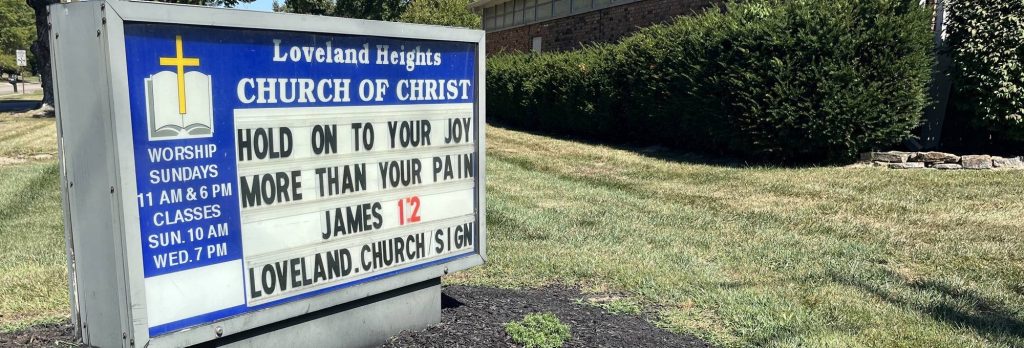
Choosing with your heart is harder than choosing with your time.
I’ve always loved that old tale of the monkey who finds a coconut in the jungle with rice inside. The story goes that the monkey will reach inside a coconut with a hole on one side. And the hole, miraculously, is just big enough to slide his hand into. And inside the coconut, somehow, is perfectly cooked, and still warm, rice! The monkey can’t believe his luck! He grabs a big handful, but his closed fist is larger than his open hand, so he can’t get out without letting go of his rice. Moments later, a local villager walks up to the monkey, hits him on the head, and has monkey stew with coconut rice. The monkey, the lesson goes, was so caught up with his rice, and so unwilling to let his treasure go, that he sacrificed his life. I don’t know if the story is true. It seems like the monkey would just dump the rice out. But I think the story is supposed to tell us more about ourselves than about the primate propensity for pilfering provisions. While we can certainly learn lessons related to the value we place on our temporary possessions, I also see our ability to hold on to things that can no longer serve us. Certainly, the events of our past are not worthless – they are often full of valuable lessons and ways of understanding ourselves. But the pains of our past are not worth holding onto. We can appreciate the lessons or the revelations while leaving the pain in the past. This is not easy or immediate. It may take the support of friends, mentors, and professional counseling. But we may struggle holding on to the happiness available to us if our sights are set on our pains.
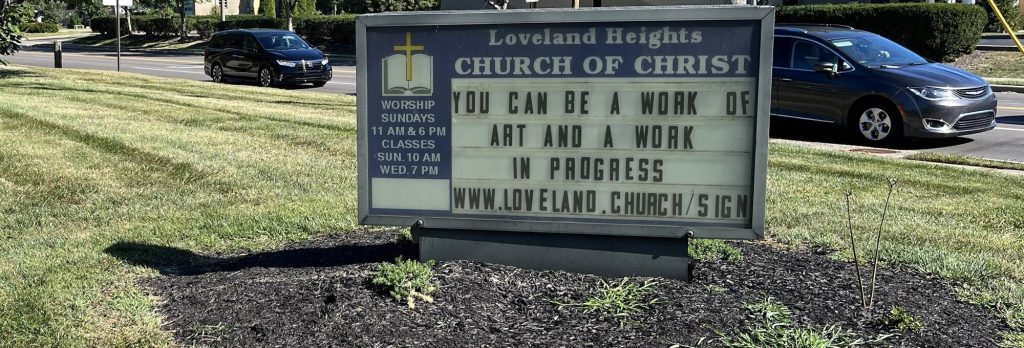
The imperfect brushstrokes in a masterpiece
Many years ago, my wife and I were touring an art museum. In one gallery, a man was busy copying one of the masterpieces. We assume he was a college student (like us at the time) who was working on a class assignment. You could tell there were techniques he was working on – color and shadow and other things that only painters can appreciate. I was certainly in no place to assess his progress, but I did enjoy the process.
In the grand gallery of life, each of us is a masterpiece in the making, a work of art in progress. We, as both the canvas and the artist, are constantly growing, shaping, and refining ourselves. Embracing this duality allows us to appreciate our journey while striving for growth and self-improvement.
We paint our stories with the colors of our experiences, the strokes of our choices, and the emotions that define us. Every moment, every decision, adds depth and texture to our narrative.
Yet, unlike paintings, human masterpieces are never truly finished. They continue to develop with time, reflecting the ever-changing nature of our perspective and the world around us.
Acknowledging our limitations does not diminish our worth; rather, it amplifies our humanity. It is through our flaws and vulnerabilities that we find strength and resilience. Each setback, each mistake, becomes a stroke of wisdom, guiding us forward on our journey of self-discovery. (“There are no mistakes; just happy accidents” – Bob Ross)
Being a work of art and a work in progress means embracing the beauty of imperfection and the potential for growth. It means dreaming bravely, exploring honestly, and creating openly. It means recognizing that our journey is as valuable as our destination.
Let us work to embrace the journey of becoming. Let us paint our lives with love, compassion, and authenticity, knowing that we are not meant to be completed on this side of eternity.
Ephesians 2:9-10 – By grace you have been saved through faith; and that not of yourselves, it is the gift of God; not as a result of works, so that no one may boast. For we are His workmanship, created in Christ Jesus for good works, which God prepared beforehand so that we would walk in them.
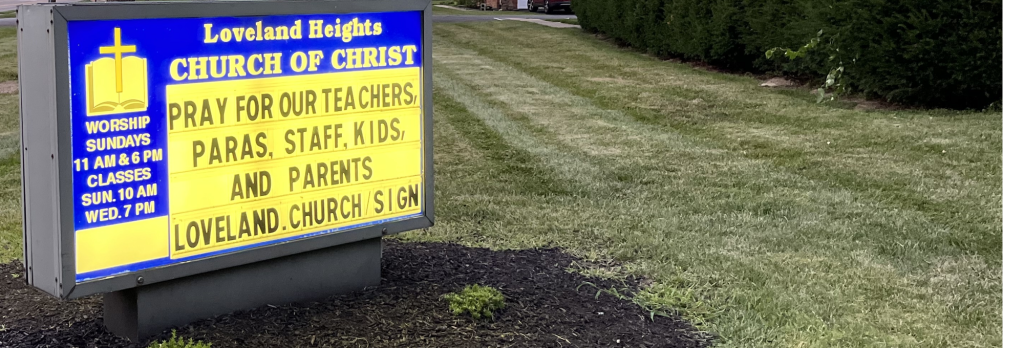
Pray for our teachers, paras, staff, kids, and parents
The time has arrived! School will be starting imminently, and many parents have been looking forward to the start of school for weeks! It’s hard to remember as school starts that so many people will be starting relationships that will define the next year or longer. As this school year begins, let’s take the time to pray for our teachers as they go back to the classroom and begin putting their plans in place to make our kids better. And let’s also pray for the huge support system that exists in every school. Some kids will learn so much from specialists this year – therapists, paraprofessionals, counselors, and administrators. The librarians, tech support, bus drivers, lunchroom staff, and custodial teams, too, will spend their year pouring their hearts and lives into the kids in our communities – maybe even your kids. It’s a humbling example of how interconnected we all are and how invested we are in the lives of those around us. I can’t wait to see what the year has in store, I can’t imagine the plans so many people have put in place for our kids and our community, and I can’t fathom the good that will come from all the work most of us will never see. But I can pray today and every day to follow.
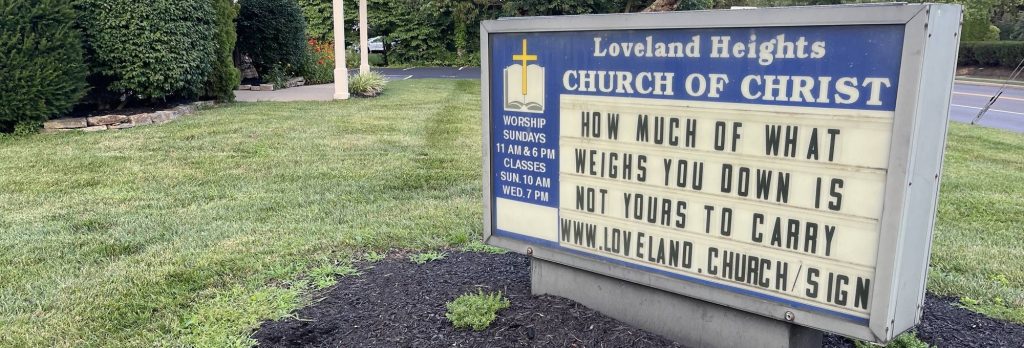
How much of what weighs you down is not yours to carry
I was recently reminded of the old trope I’ve lived out so many times – the friend who needs help moving (a couch, an apartment, a car), and buys his friends pizza for the help. We all know this is an intrinsically unbalanced transaction. Yet we also know the need for those kinds of moments. In many ways, our relationships with others are defined by the things we share. Pizza, couches, and Advil come to mind. We rely on our friends and loved ones, and they rely upon us in return.
Yet, in the quiet moments of reflection, we can also realize that much of what weighs us down is not ours to carry. They aren’t shared burdens at all. They are simply burdens.
After all, we are not responsible for the opinions of others, nor are we accountable for their happiness. We cannot control the winds of change, nor can we rewrite the chapters of our own story. We can, and should, make space and time for helping our friends, look for ways to lighten the burdens of those in need, and work to be a valuable member of our community. But we must also look for ways to limit the emotional burdens those circumstances can create. We can help carry the burden, but we can’t carry their responsibilities.
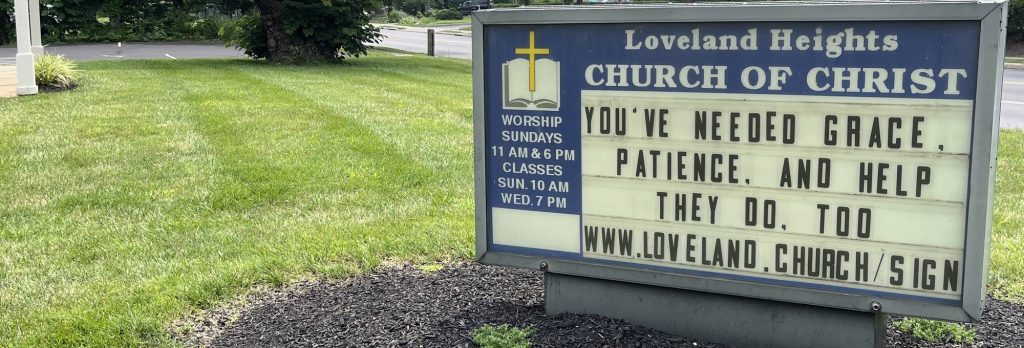
Changing our perspective can change our reality
Have you ever considered that, physically speaking, the further apart we are, the bigger the difference is in our perspective. A goat looks very different from a 3-year-old’s point of view than it does from an adult’s. This was pointed out to me many years ago by a parent who pointed out that shopping in a busy store at Christmastime, to a walking child, is just a forest of pants. They can’t see the lights. They probably can’t hear the music. It’s definitely not the sensory experience for them that you have.
Much is made of our different perspectives by pundits, analysts, and politicians, especially. But we can’t overlook the fact that another person’s differences of perspective do not invalidate their viewpoint, but should enhance it. It should drive us to step into their place and, especially when we don’t agree, look from their position.
Reflecting on my own journey, I’ve realized the profound significance that kind of patience and grace can have, not only in my own life but in the lives of those around me.
There have been moments when I’ve stumbled, faltered, and felt the weight of uncertainty that led to hesitancy, delay, and mistakes. Sometimes, the grace and patience of others helped me work through those issues. But rarely does criticism, condemnation, or judgment benefit anyone.
There have also been times I have criticized another person’s perspective just to find out that my own viewpoint was so limited I wasn’t seeing clearly. In both instances, honesty, patience, and grace should have been the keys to understanding.
In extending grace, offering patience, and lending a helping hand, we cultivate a culture of empathy and understanding. We become beacons of light in moments of darkness, pillars of strength in times of adversity. We create the place for others that we ourselves have needed.
So let us walk this journey together, embracing our imperfections and celebrating our shared humanity. And let us extend to others the grace we have needed ourselves.
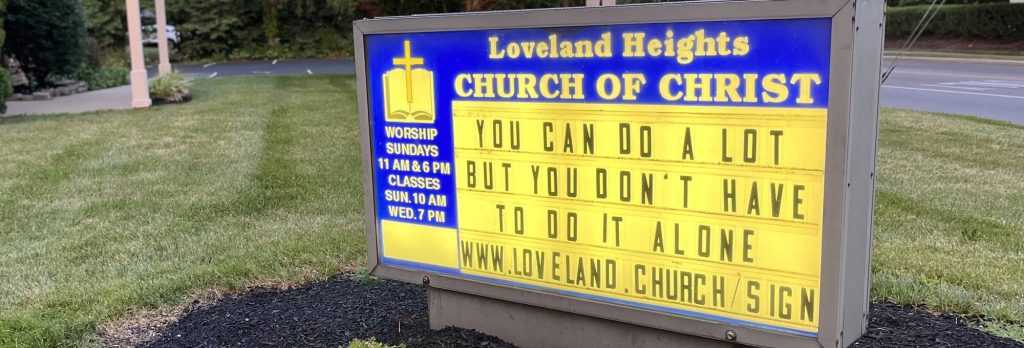
Moving Forward Together
In the hustle and bustle of modern life, it’s easy to fall into the trap of believing that success and fulfillment must be achieved through sheer individual effort. However, the truth is quite the opposite: you can accomplish so much more when you embrace the support and collaboration of others.
We have been led to believe that asking for help is a sign of weakness. I think we can all recognize that engaging others in this way is actually a testament to your strength and wisdom. Every great achievement in history has been the result of collective effort, collaboration, and shared vision. As the saying goes, “many hands make light work.”
When you acknowledge that you don’t have to do it all alone, you open yourself up to a world of possibilities – both in success and in relationships. Whether it’s pursuing a personal goal, launching a new project, or navigating through challenging times, having a support network can make all the difference.
Friends, family, mentors, colleagues – these are the individuals who can offer guidance, encouragement, and sometimes especially a listening, discerning ear when you need it most. By leaning on their expertise and experience, you can overcome your own obstacles more effectively, reach your goals with greater ease, and build deeper relationships with those you value.
Collaborating with others, too, allows you to tap into diverse perspectives and ideas, sparking creativity and innovation along the way. Together, you can achieve far more than you ever could on your own.
So, the next time you feel overwhelmed or uncertain, remember that you are not alone. Reach out, connect, and embrace the power of collaboration. Together, we can accomplish extraordinary things.
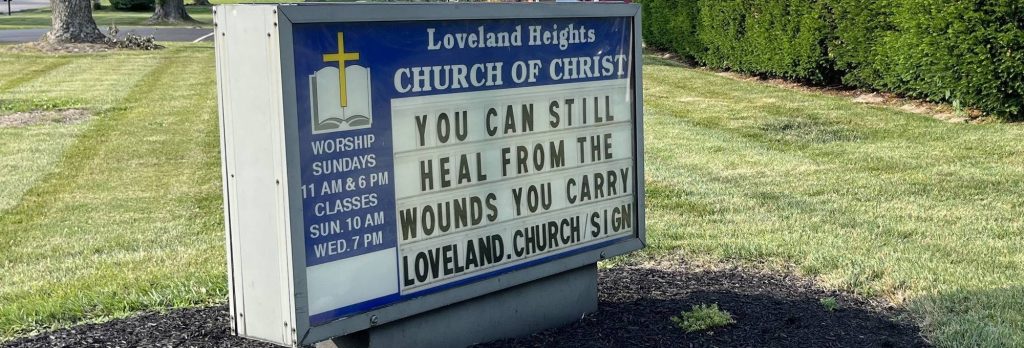
Letting Go of Hurt and Finding Strength
Life is a journey filled with joy, love, challenges, and yes, hurt. At times, the weight of hurt can feel heavy, burdening our hearts and minds. It can linger, casting shadows on our present and dimming the light of our future. Yet, in that pain, there exists a profound truth: healing is not only possible but within reach.
Each of us carries our own unique wounds, scars from the battles we’ve faced, and the trials we’ve endured. These hurts may stem from broken relationships, lost opportunities, or the unkindness of the world. They may be fresh wounds or old scars, but regardless of their origin or age, they continue to shape our lives.
The journey toward healing begins with acknowledging the hurt we carry. It requires us to confront the pain and to honor its presence in our lives. Recognizing our pain is the first step – an act of courage, a declaration that we refuse to be defined by our wounds.
In the process of healing, it’s important to grant ourselves permission to feel. We must allow ourselves to grieve, to rage, to weep, and to laugh. Emotions are the language of the soul, and through them, we find release and renewal. It’s okay to not be okay, to stumble and fall, for it is in our vulnerability that we discover our true strength. But healing is not a linear path. There will be days when the hurt resurfaces, when the wounds reopen, and the tears flow once more. Healing is a gradual process, a journey of self-discovery and self-compassion. And it is a journey we do not have to take alone.We need time, and we may need help, to cultivate patience, kindness, and resilience within ourselves. It is not easy to embrace our imperfections, to forgive our mistakes, and to extend grace to ourselves and others. Healing thrives in the warmth of community, in the embrace of loved ones, and in the wisdom of mentors and guides. It’s okay to reach out for support, to lean on others when we feel stuck or tired – we can find strength and solace through connection and community.
Ultimately, the journey toward healing is a testament to the resilience of the human spirit. It is a testament to our capacity to transcend pain, to transform suffering into growth, and to emerge from the depths of despair with renewed purpose and vitality.
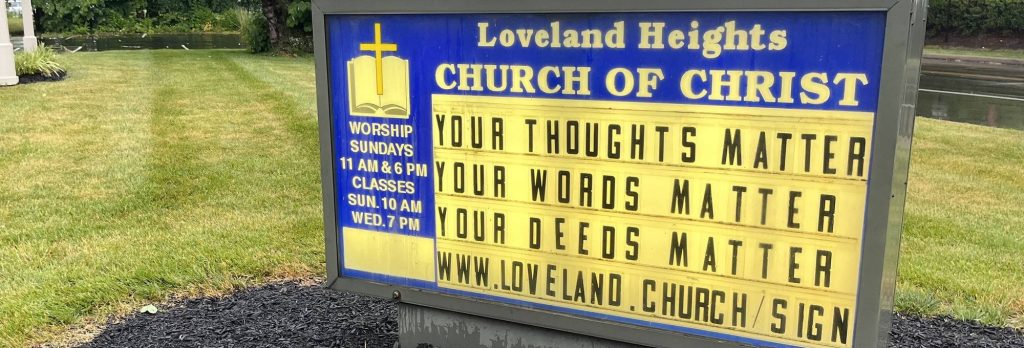
An Infinite Progression
A few days ago, I was sewing a small project when I got distracted. It was just a moment, but my thread started drifting off course. Not enough to matter (I thought), but now, every time I see it, I’m reminded. In the tapestry of our lives, our words, thoughts, and deeds are not inconsequential fragments. Instead, they are the threads that weave the fabric of our lives and the lives of those around us. Each word uttered, every thought conceived, and each deed performed has the power to shape our life and leave a mark on the world, for better or worse.
Our words have the ability to uplift and inspire, to comfort and console, or to wound and hurt. They can build bridges of understanding or construct barriers of division. The words we speak carry with them the potential to bring light into the darkest corners of someone’s soul or cast shadows upon their spirit.
Our thoughts are the seeds from which our actions grow. They are the silent architects of our reality, shaping the world around us in subtle ways. Our thoughts have the power to fuel our ambitions, to foster compassion and empathy, or to sow seeds of doubt and fear. They can propel us forward on the path to greatness or hold us back in the chains of self-doubt.
Even more, our deeds are the tangible expressions of our beliefs and values. They are the outward manifestations of our character. Our deeds have the power to create positive change, to right wrongs, and to make the world a better place. They can be small acts of kindness that ripple outward, creating waves of goodness that touch the lives of countless others.
But let us not forget that our words, thoughts, and deeds are not isolated entities. They are interconnected, each influencing and shaping the others in a continuous cycle of cause and effect. The words we speak are born from the thoughts we think. Our deeds are the culmination of both and lead us onward to both as well.
Let us choose our words with care, speaking with kindness, empathy, and compassion. Let us nurture thoughts that uplift and inspire, thoughts that envision a world filled with love and understanding. And let us act with courage and conviction, using our deeds to bring about positive change and create a brighter tomorrow.
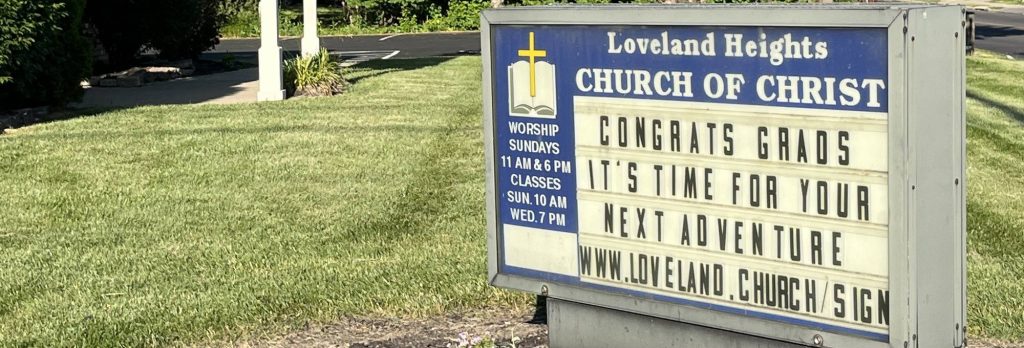
Congrats Grads! It’s time for your next adventure!
Congratulations to all our recent graduates, and the friends, family, and support system who has helped them achieve this great milestone in their life! Graduation is one of the last true “milestones” we have as a society. From this point on, you will create your own victories and successes as you navigate the new landscape before you. In a lot of video games, there comes a point where the storyline moves from a linear game to an open world where you are tasked with exploring and discovering on your own. In a lot of ways, graduation is like this, as well. There are unique risks and challenges. There are unique opportunities and risks.
Above all, remember that your journey is uniquely yours, and there is no predetermined roadmap to success. Embrace the twists and turns, celebrate your victories, and cherish the lessons learned along the way.
Welcome to the next chapter of your extraordinary journey. Your challenges are there to be conquered, and the journey can be reward enough.
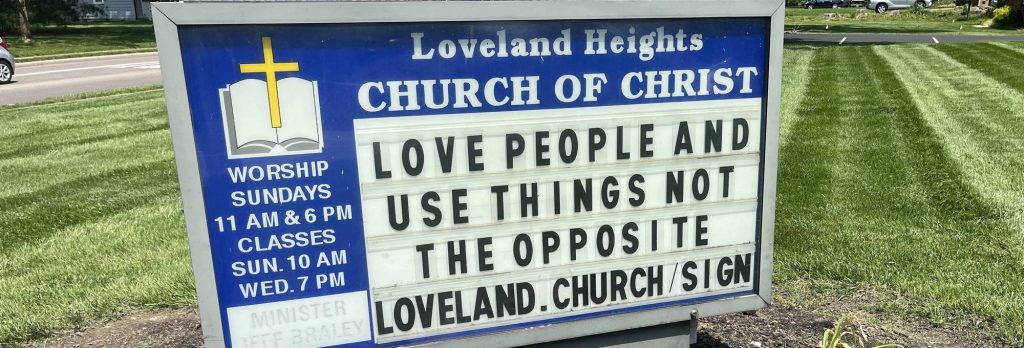
The things you love
I have a small axolotl on my desk – one of those stuffed plushies that are happy one way and you turn them inside out to make it angry. And I use it a lot more than you would expect a 40-something-year-old man to use a stuffed animal. On the list of people I talk to, it is a lot higher on the list than most of my friends. There aren’t a lot of people I see more than my headphones and my coffee cup. They have all helped me through sermon writing, sewing projects, and JavaScript refactoring. And it’s easy to get attached to the things you use every day (especially when they deliver music and caffeine to your life!). It can be a lot harder to love people – especially the people you see often. People are generally more needy, more temperamental, and disagree with you more often than your stuff does. Yet genuine and unconditional love forms the cornerstone of our existence. It is who God is and what God wants us to display as well. When we prioritize living out God’s love for one another, we cultivate empathy, compassion, and a deep sense of interconnectedness. In our deeply consumeristic society, it’s no wonder these are the very things we yearn for. And it’s also not surprising how often people seek to use others to accomplish their own goals – parents with their children, employees and employers, even friends.
In the tapestry of life, let us weave threads of love and compassion, stitching together the fabric of a more just, equitable, and compassionate world. May we always remember that true abundance lies not in what we possess, but in the depth of our relationships and the richness of our shared humanity.
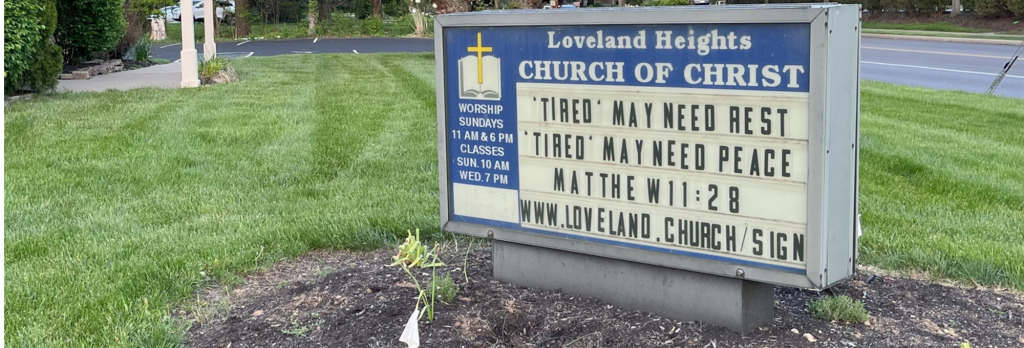
Knowing your flavor of tired
Have you ever been exhausted? Just weary to your bones? There’s a certain tiredness that comes from a long day or week or season of hard work, be it physical labor or emotional toil. This is the kind of tired that can be cured by time off… a relaxing weekend, a trip away, a sabbatical. There’s great value in honoring your body. “Lazy” is a myth. A tired body and mind need rest to recover.
There’s also a deep weariness that can take hold when our hearts are not at ease. This can happen for so many reasons. Grief, burnout, deconstruction, loneliness. So many things can conspire to steal our peace. There’s no one-size-fits-all answer for the tiredness that comes from a lack of peace. Prayer, meditation, finding something to look forward to, gratitude journaling, pushing out of a comfort zone. These are a few ideas, but the most important thing you can do is ask for help! Your church family stands ready to assist you as you rest, seek peace, and grow in God’s love. And of course, another important way to ask for help is to consult your primary care physician if you are experiencing new, ongoing fatigue or a mental health issue. Counselors, doctors, and other professionals have tools to help us work through tiredness, as well. As the saying goes, “you can have Jesus and a therapist, too.”

Listening is twice as nice
I was watching one of those talking-head shows the other day (ESPN, I think) when I noticed that none of the people were actually listening to each other and addressing the things they were hearing. Each one would ask another a “leading question” about some player, and the other person would, instead of answering, just run off with their own ideas like my dog with a new toy. Once I noticed it, it drove me crazy. How could you work with someone all the time who just refuses to address what you’re saying? But then I realized I often do the same thing. I certainly don’t listen as much as I should, much less as much as I could. It’s often easy to see in others, and more difficult to recognize in ourselves.
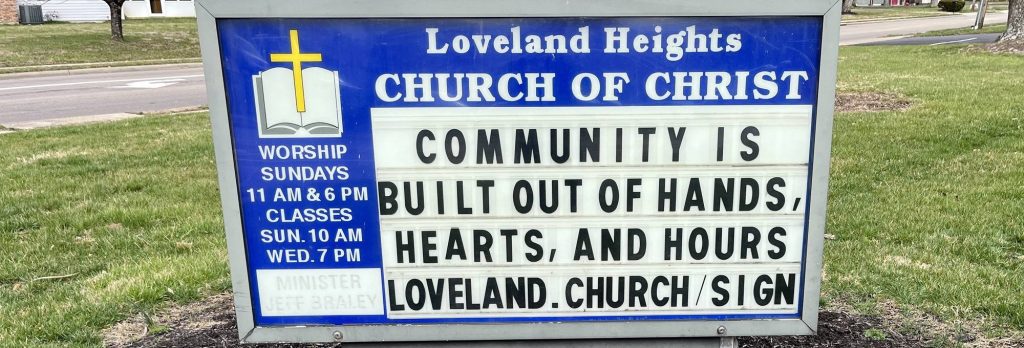
How homes are built
As many people do, I have often found myself on WIkipedia reading about some random something or other. Recently, I was reading about the way many of our most precious metals are mined. Not gold and silver, but the metals used in computer products and batteries. They are extremely valuable and, often, the mining process is extremely labor-intensive. As important as they are for modern technology, these most valuable of things require something even more valuable – an abundance of time, effort, and energy. For many things, there is simply no substitute. This is true in our relationships, too. There are no shortcuts without exploiting others. If we want to have a village, we pour our own hearts, hands, and hours into the lives of others.
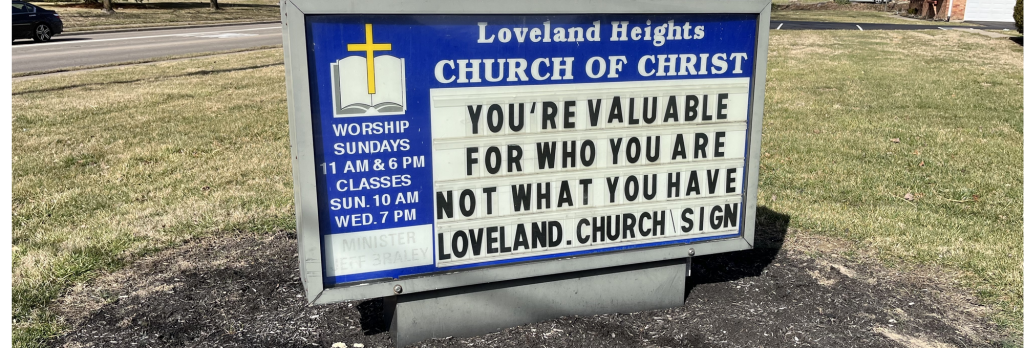
What is a life worth?
Economist Betsy Stevenson* says that, up until the 1980s, the value of a life was decided by their work value. The question to answer was, “what is the cost of death?” When you include the medical costs associated with death and their lost earnings, you get the “cost of death.” In the ‘70’s and early ‘80’s, the average cost of death came out to around $300,000. Around the same time, W. Kip Viscusi was challenging that number in a debate about OSHA labels. The government was debating whether dangerous things needed to be labeled – “corrosive,” “flammable,” “poison,” things like that. And the government had decided printing all those labels wasn’t worth the 4,750 lives it would cost to just not label things. Through a math equation that, I’m sure, makes sense to economists, he deduced that people value their own lives, on average, to about 3 million dollars. He convinced George H.W. Bush of this math, and that’s why we have those OSHA warning labels on things today. Meanwhile, the Department of Transportation’s value of a life reached $2.5 million in only 1998. All of this, of course, is beside the point. How valuable your government thinks you are doesn’t define or limit your value. What you bring in per hour, how full your calendar is, and how much life insurance you have isn’t indicative of your worth. God Himself, to my knowledge, doesn’t place a value on your life, either. The closest He gets is the somewhat understated “Are not two sparrows sold for a cent? And yet not one of them will fall to the ground apart from your Father. But the very hairs of your head are all numbered. So do not fear; you are more valuable than many sparrows.” In a proverbial way, your value to God is beyond your knowing. And He, after all, is the One Who would know such things.
*there’s a fascinating podcast on this subject at https://www.npr.org/transcripts/835571843
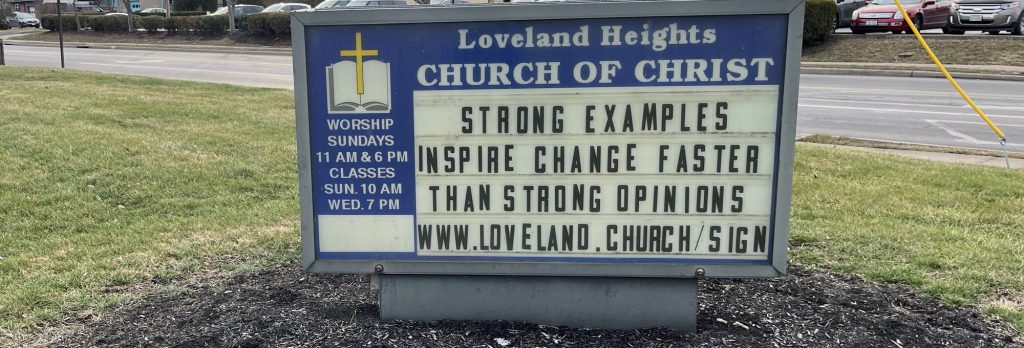
Shoe Leather Theology
The 24-hour news cycle has elevated opinions above everything else. Channels work hard to bring in “experts” to argue one side or the other(occasionally, an actual expert shows up). In a time so dedicated to vociferous argument, it’s easy to forget that the most powerful influence we can have on others is not what we say or how loudly we say it, but how we live – embodying the values we believe in and literally “practicing what we preach”.
It means being a role model to those around us, inspiring them through our actions rather than just our words. One of the oft-used rebuttals to arguments is, “well, if you really cared about ______, you would be out there ________. And those statements are more accurate than we would like to admit. Strong beliefs are certainly important, but if they are not backed up by consistent, ethical, and just behavior, they ring hollow.
Our daily choices and interactions are going to display what our true beliefs are. When we prioritize living a good example over simply having strong opinions, we not only inspire others, but we also strengthen our own character and convictions. Alternatively, if we spend our time as a part of the “outrage machine” that has developed in our culture, but none of our time caring for those people, we show where our beliefs actually rest.
In a world that is often divided by conflicting opinions and ideologies, it is more important than ever to prioritize living a good example – embodying the values we believe in and demonstrating them through our actions. In this, we can be a force for positive change and inspire others to do the same.
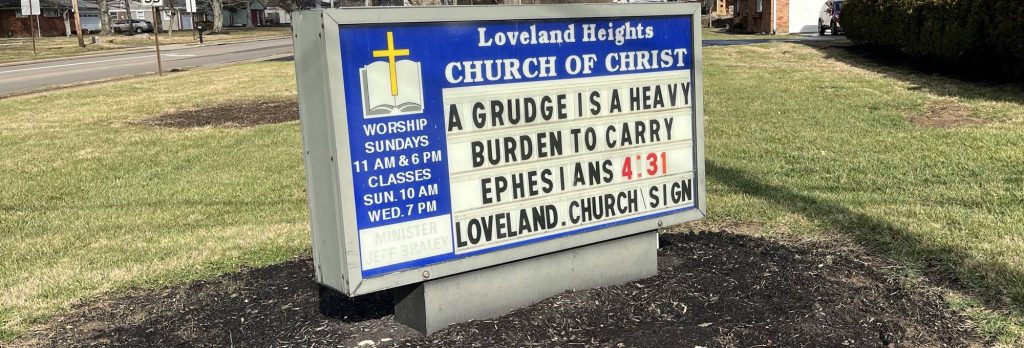
“…And I will give you rest.”
I remember gardening with my grandmother years ago. One job we did every year was picking about half an acre of purple hull peas. Looking back, it wasn’t a big job, but I remember finishing the job and having to walk around all hunched over for a while – my back had stiffened up while I was working, and I couldn’t stand up straight! In a lot of ways, grudges are like that. They force us into uncomfortable positions, and they can keep us there with a variety of different kinds of pain. In the end, though, grudges take a toll on our mental and emotional well-being and may not help us at all.
Holding a grudge is burdensome because it requires so much energy to maintain. Keeping a grudge means we are thinking about the person or situation, and how it hurt us. Not only is this mentally and emotionally draining, but it can lead to feelings of anger, frustration, and even depression. It interferes with our ability to move on and can prevent us from finding closure, healing, and even growth.
Grudges can also negatively impact our relationships. When we hold a grudge, it can be difficult to communicate with them and maintain a healthy relationship. This is especially true when we don’t get to choose those relationships – like with our co-workers.
Besides, holding a grudge is not an effective way to deal with hurt or wrongdoing. Instead, it’s important to find ways to process and release our negative feelings. This can involve talking to a therapist, journaling, meditating, or practicing forgiveness. Many times, we will need help with any or all of these practices. Forgiveness, especially, is hard. But remember that forgiveness is not about excusing or ignoring the hurt, but rather about releasing the negative emotions associated with it.
Letting go of grudges isn’t easy, and it will take time, but it can free you from the burden you carry and help you move on with your life.
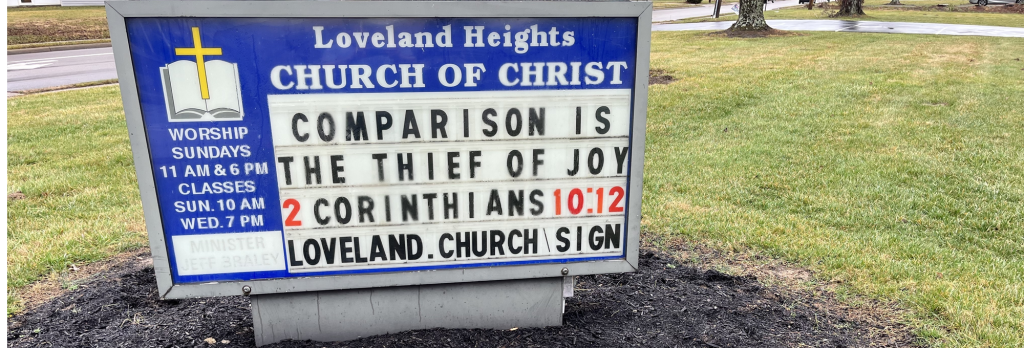
What steals your ability to enjoy your blessings?
Over the years, many writers have claimed different things are the “thief of joy.” Time, age, anxiety, death, anticipation, worry, and many others. Certainly, each of those can steal your joy or poison your attitude. Comparison, also, steals your ability to enjoy your own circumstances. Either we compare ourselves to those who have less (which can make us sad, disappointed, haughty, or judgmental), or we compare ourselves to those who have more (which can cause jealousy, anger, resentment, shame, guilt, or a number of other feelings). Comparison is easy for all of us, and we often do it in ways that support our own struggles or preconceptions. It can be much more difficult to see what we have, thank those who have helped us, enjoy our blessings, and seek to be a blessing to others in turn. Yet each one of those steps are doorways to joy, connection, authenticity, and gratefulness. Life is not just about joy, and joy comes from more than just stuff, but let us all strive to bring joy to others and live joyfully as well.
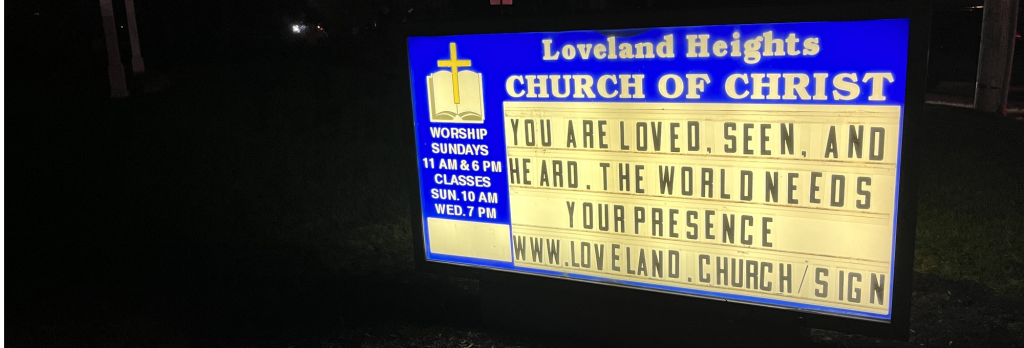
Too busy to look inside
There’s a lot happening in the world from Thanksgiving to New Years. Work is thrown off, families are scrambled, and I often forget what the date is! (Especially between Christmas and New Years!) Even though it’s so busy, and maybe because it’s so busy, we can become overwhelmed with the stress and obligations instead of overwhelmed by the opportunities for love, support, friendship, hope, or peace of this season. This may be an especially difficult time in your life or in the life of someone you love. However your day has gone, however the holidays are going, you are loved. You are seen. You are heard. And your presence makes a difference.
(If you or a loved one are in crisis, please dial Lifeline at 988.)
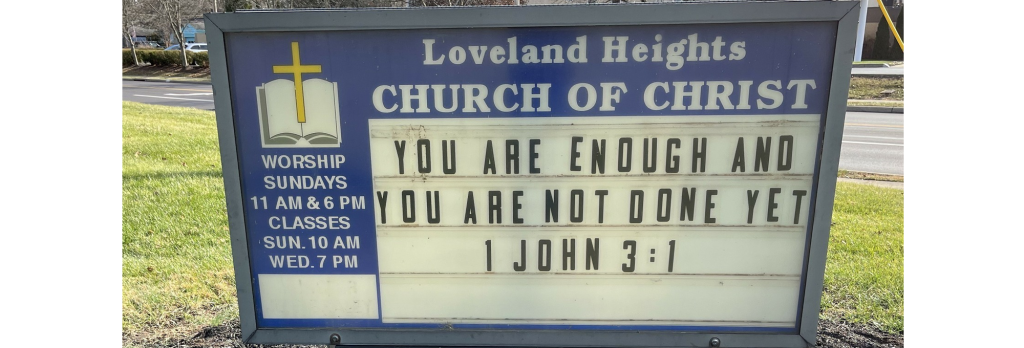
Measuring Up
We live in a world dominated by ads. We usually don’t forget this, but we usually don’t think about the effects the constant bombardment of ads has on us. It is typical for advertisers to sell us their products by convincing us that we need it – that we aren’t good enough (yet).
But! if we had their magazine/exercise bike/phone/meal/car/gadget, then we would be happy. It’s obvious why they do this. It’s also obvious, when we think about it, how silly that sounds. What is harder is understanding that we are enough right now. We don’t need a gadget to be good enough. We are already created in the image of God. We are enough right now. Sure, we will continue to grow. We will learn and develop and mature (we hope). But those things don’t make us more worthy.
And when we run across the person who thinks we are too much? Who want us to shrink back, to hide, to change, or to be less so that they will like us, as if our value is based in their perceeption or opinion? As Elyse Myers says, “go find less.”
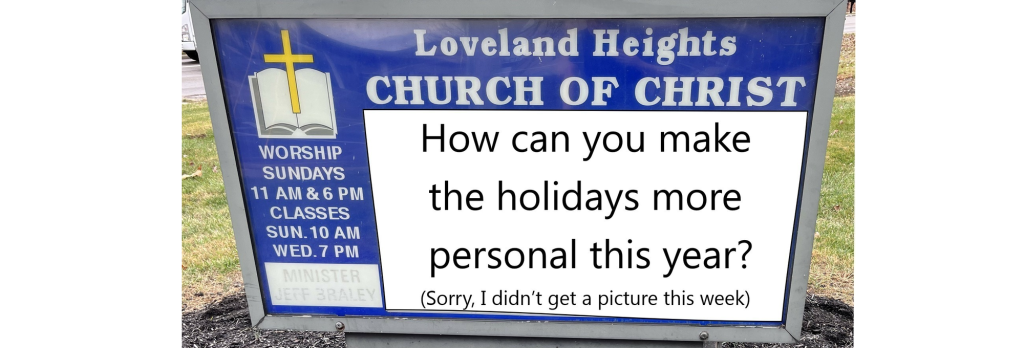
3,000 miles For a Turkey Leg?
Have you ever gotten so caught up in the details of something that you completely missed the reason you were doing it at all? I’ve done that. I’ve gotten so focused on getting a meal “right” that I forget my family actually needs to eat some time in the next few hours! This kind of thing can be difficult at the holidays – Thanksgiving especially. We get so caught up in having the perfect turkey, potatoes, pies, table setting, or whatever that we forget the reasons we are together and the wonderful opportunity we have to be thankful. I think we would probably have a much better Thanksgiving with pizza and sandwiches than with a feast and all the stress that goes with it. Besides, the dishes are so much faster if you just eat with napkins! Especially if your family travels a long way, it’s important to realize there’s no turkey on earth worth a cross-country trip. We travel to be together. What can you do to make the holidays more personal this year?
There are days where I’m working hard to just get things accomplished at all. It may not be perfect. It may not be pretty. But I tried. And the message gets across. Those are days I need grace. I’m sure you have them, too. Days where you don’t have enough letters or spoons or bandwidth or whatever analogy you use. Other people have those days, too. We all need grace every day. We need grace from one another. The grace to be imperfect and accepted. The grace to be loved for who we are. We need grace from ourselves. Grace to not be our optimal self every day. And most of all, we need grace from God. We need to know that the One Who created us, Who knows us better than we know ourselves, loves us and wants to be with us.
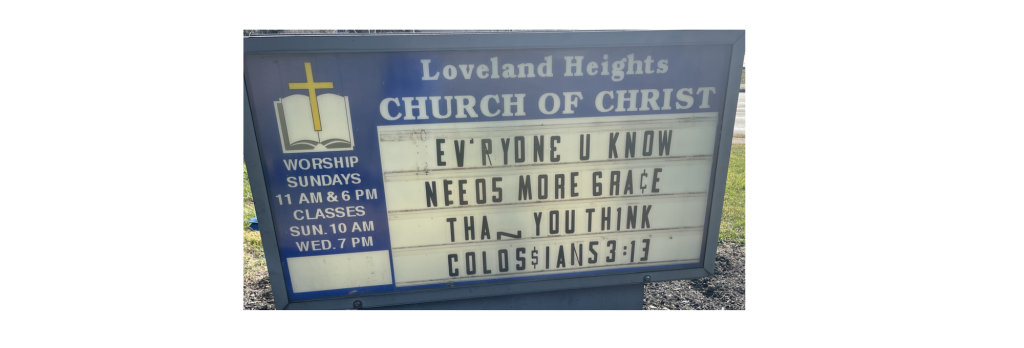
The Other Side

More Grace
For a lot of us, grace is a word used for musicians, monarchy, or meals. Maybe athletics. But it’s not a word we use very often for the way we treat other people. This is especially true when we are driving! We will often recognize the reasons behind our own mistakes or unusual decisions (have you ever driven with a full crock pot of chili in the car?) But we have a harder time recognizing when others need that same grace. An exercise I was taught years ago was to imagine the circumstances that would help explain another person’s difficult behavior. Why would a person need to drive so fast? What could be happening in a person’s life that would cause them to get that frustrated with another person? What would cause this person to care so much about such an inconsequential thing? once I figured out what Could be happening, it became easier for me to extend grace regardless of what had actually happened.
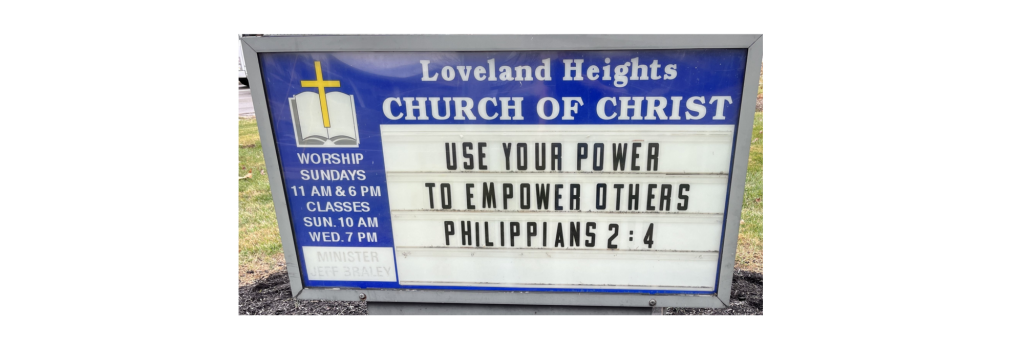
You Are Powerful
It’s election time again. And regardless of party affiliation or job responsibility, we all hope our representatives will use their time in office working to empower us. Certainly, we can point out any number of powerful people who have used that power for selfish reasons (this is true in any field). We forget sometimes how powerful we can be. We forget how often we can choose to build up and encourage. We forget how powerful kind words can be. No matter how much power you have, use it to benefit others – especially when they are different from you.
